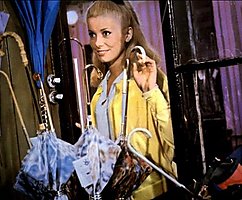Children's fanaticism and of his signs
 Bashny.Net
Bashny.Net

Child psychologist Oksana Zadarinsky talked about how to identify child-fan and release it from attachment to the person. Fan culture exists not one decade. Nevertheless, fans every year is just "younger". Yes, and modern pop singers become famous at quite a young age. Only one Justin Bieber is worth. He released his first album when he was only 15 years old. The merits of the singer, we in any case don't plead. Another question. In pop culture there are negative aspects, bringing a lot of anxiety for parents, which is quite justified in trying to protect them from their children. But how to understand that the child became a fan, and, most importantly, how to lead. Child psychologist Oksana Zadarinsky cites three basic attributes, which can determine that the teenager came under the influence of fan culture. 1. All thoughts and talk only about the idol. Whenever possible, the child tries to bring the conversation to his favorite topic. He is in business and not in the business of trying to bring the object of his adoration as an example. From the child and then heard phrases like: "But "my star" would have done so, and all this would be fine." 2. The child creates a file. When a teenager becomes a fan, it starts from a variety of sources to collect and store information "on the subject of their fanatical attachment". The child sits on the websites, reading blogs, and ultimately, finds close-minded people. Together with like-minded teenager begins to monitor the personal life of a star, her Hobbies, travel, concerts, etc. 3. I'm the same as him. Most vividly the fanatical attachment occurs when the child tries to imitate his idol. He asks to buy him the same things, how is a star, some accessories and other merchandise, for example, you can buy children's shoes from the manufacturer retail cheap. But how to behave parents if the fanaticism of the child goes beyond a simple hobby? Child psychologist Oksana Zadarinsky makes some recommendations. 1. Please be patient. It is easier to pretend that you notice nothing, but then, when the child is ready to do anything for "his star" to change something very difficult. Parents should try to make fascination with your teen and planned to fight on eliminating the problem. The psychologist notes that it's not easy. To change the child's attitude to his hero – the heavy psychological work, first and foremost, to the parents. 2. Constantly talk with your child. Observe the neutrality and tranquility. As soon as you notice excessive interest your son or daughter to some star or other, try to figure out what caused it. Maybe a teenager just succumbed to the influence of friends. In this case, the fascination of a child will last exactly as long as the star is interested in his comrades. Another thing, if the adolescent compares himself to his idol. Then, in his opinion, the star opens new horizons for it. And parents for further action need to hear it from the child. 3. Try to show children that there are no perfect people. But do it carefully, so that, firstly, not to cause psychological trauma to the teenager, and, secondly, not to push him away. Parents of the fan have to find and bring the child as much as possible other examples of successful, charismatic people in the same field as his idol. Thus, you will notice that the star is not so exceptional as it seems. Showing the child around a lot of people who are equal, you will reduce the level of its rigid attachment to a specific person. 4. Let your child be disappointed in its star. If a teenager is seriously involved in the life of his idol, then that change will not be easy. You can try to gently show the child the negative side and quality stars, to give an example of some things that reprimand he received in society. Disappointment in the exclusivity of his idol and negative experiences chastened and feelings of a teenager. But please refrain from sharp statements and rude. Try to gently explain to your child that absolutely everyone is multifaceted. 5. Install with a teenager trustworthy and emotionally warm relationship. According to the psychologist, in fact, a child, panacea from another person, replaces, thus, the relationship with parents. Teenager trying to make up for those feelings that he gets from family and friends. Try to pay more attention to the child, let him feel his uniqueness. Show your child that it is itself valuable and dear to you. Perhaps it will stop him from being able to completely immerse themselves in the life of another person.
Source: ecowars.tv/
Tags
See also
An amazing story of the Siberian family that 40 years have not seen other people
Jack Kornfield: 10 signs of spiritual maturity
Do we cripple love their children
Mother not girlfriend
Julia simultaneously: the 3 sign that you were able to listen to the child
Wolf Messing. Unknown predictions.
Dentists were asked how to brush their teeth, and that's what they told
Hereditary completeness and cheerfulness are interconnected?

















